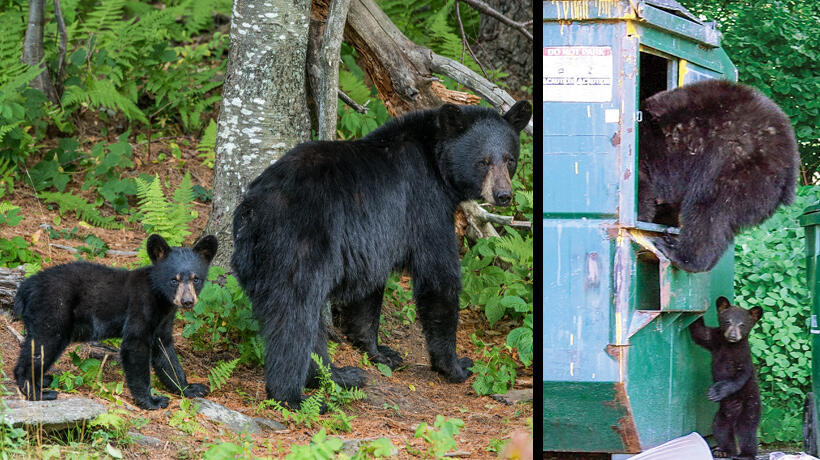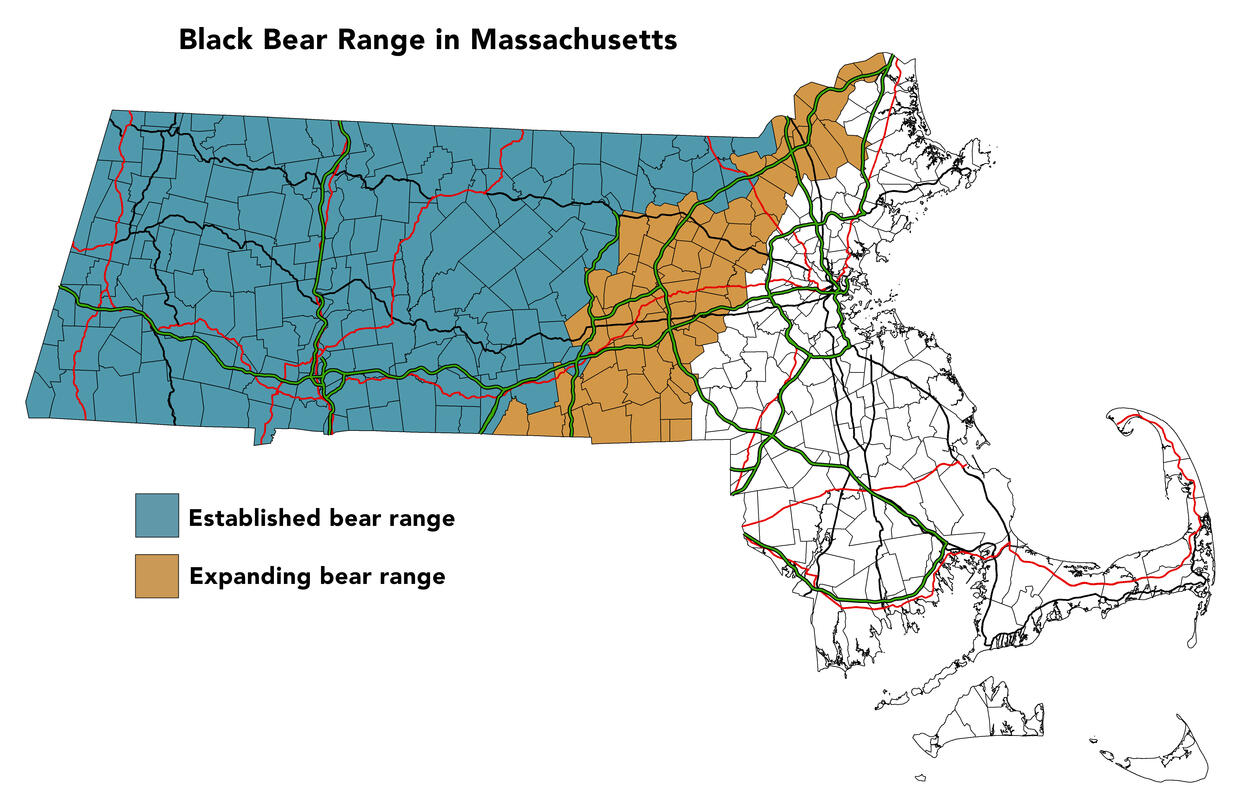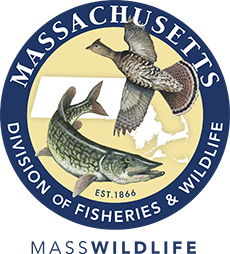- Division of Fisheries and Wildlife
Media Contact
Media Contact, MassWildlife

With the increasing number of black bears found in many areas of Massachusetts, it is important for all residents to know how to prevent problems. While people living in western Massachusetts have been coexisting with bears for years, others in the eastern part of the state may be surprised to learn that black bears likely live nearby as well. In the mid-1970s, the Massachusetts black bear population was estimated at under 100 individuals, and today the population is estimated to be over 4,500.
As the bear range expands eastward toward the most densely populated communities of Massachusetts, bear sightings are increasing, and many people are asking themselves, “How dangerous are bears? Is it normal to see a bear in a neighborhood? What do I do if I encounter one?”. Taking a few easy, precautionary measures will help you avoid negative encounters with bears and other wildlife.
Prevent conflicts with bears
At home:
Bears often pass through residential areas where you may not expect to see them. Bears tend to spend more time in neighborhoods if there is food available.
- Remove all potential food for bears including bird feeders, unsecured garbage, and compost piles.
- Clean greasy barbecues after each use.
- Feed pets indoors. The presence of a barking dog can trigger a bear to become aggressive; always keep dogs leashed, check your yard for bears before letting your dog out, and never let dogs chase or interact with bears.
-
Special note for backyard chicken owners and beekeepers: Black bears killing chickens and damaging coops is becoming the number one human-bear conflict in Massachusetts. Installing and maintaining electric fencing is the only way to keep bears out of coops and away from hives. Learn how to protect your bees and chickens.
While hiking or camping:
While bears are generally not aggressive and usually wary of people, it’s always important to respect bears and give them plenty of space if you encounter them in the woods.
- Always be aware of your surroundings. Normal trail noise will usually alert bears to your presence and prompt them to move without being noticed.
- Keep pets leashed and supervised.
- While camping, store food and cooking gear in bear-proof containers separate from your sleeping area. (Coolers are not bear-resistant!)
What to do if you see a bear
In town:
- If a bear is sighted in town, leave the animal alone. In most situations, if left alone, the bear will return to the forest on its own.
- Keep dogs under control and clear the area.
- If a bear is in a densely populated area, contact the Environmental Police Radio Room at 1 (800) 632-8075 or the nearest MassWildlife District Office to report the sighting and get advice.
In the woods or in your backyard:
- Stay calm and back away slowly to give the bear plenty of room.
- Bears will sometimes “bluff charge” when cornered or threatened. Don’t run from a charging bear; speak calmly and slowly back away.
The best thing for people to do is educate themselves about bears and take action to prevent conflicts. Dave Wattles, MassWildlife’s Black Bear and Furbearer Biologist said, “As our bear population increases, people need to understand what it means to really co-exist with bears. People need to change their behavior because bears aren’t going to change theirs.” For more tips on living with black bears in Massachusetts, please visit mass.gov/bears
Learn more:
- MassWildlife's website contains a wealth of information about black bears in Massachusetts, including tips for residents, research projects, conservation and management efforts, and more.

